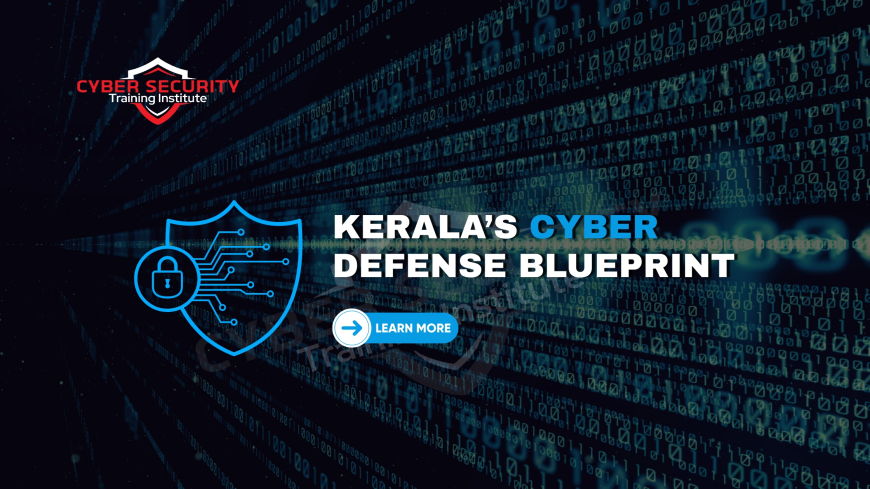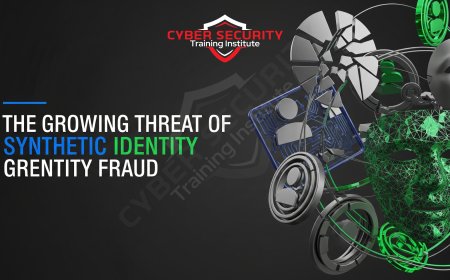From Data to Defense | Kerala’s Cybersecurity Strategies in the Digital Era
In today’s world, where everything from banking to socializing happens online, protecting our digital lives is more important than ever. Kerala, a state known for its high literacy and tech-savvy population, is leading the charge in India’s fight against cyber threats. From safeguarding personal data to defending critical infrastructure, Kerala’s cybersecurity strategies are evolving to meet the challenges of the digital era. This blog explores how Kerala is building a robust defense against cyber threats, making complex ideas simple for everyone to understand.

Table of Contents
- The Rise of Cyber Threats in Kerala
- Kerala’s Cybersecurity Framework
- Key Initiatives and Developments
- Role of Education and Awareness
- Challenges and Future Directions
- Conclusion
- Frequently Asked Questions
The Rise of Cyber Threats in Kerala
Kerala’s rapid adoption of digital technology has brought immense benefits, but it has also made the state a target for cybercriminals. With high internet penetration and a tech-savvy youth, the state sees a cybercrime reported every two hours, according to recent police records. Common threats include:
- Phishing attacks, where criminals trick people into sharing personal information.
- Ransomware, which locks devices until a ransom is paid.
- Social media misuse, including fraud and defamation on platforms like Facebook.
- Financial crimes, such as credit card fraud and money laundering.
The increase in cybercrimes is linked to Kerala’s widespread broadband access and the shift to digital platforms during the pandemic. This makes a strong cybersecurity strategy essential to protect individuals, businesses, and government systems.
Kerala’s Cybersecurity Framework
Kerala has developed a comprehensive cybersecurity framework to address these threats. This framework focuses on three core pillars:
- Governance: Policies and regulations to ensure organizations follow best practices.
- Technology: Advanced tools like firewalls, encryption, and AI to detect and prevent attacks.
- Human Expertise: Training people to recognize and respond to cyber threats.
The state aligns its strategies with national and international standards, such as the NIST Cybersecurity Framework and India’s Digital Personal Data Protection Act (DPDPA). By combining these elements, Kerala ensures a balanced approach to cybersecurity.
| Pillar | Description | Example Actions |
|---|---|---|
| Governance | Establishing policies and compliance requirements | Adopting DPDPA, creating cybercrime reporting mechanisms |
| Technology | Using advanced tools to protect systems | Deploying AI-based threat detection, immutable backups |
| Human Expertise | Training individuals and organizations | Cybersecurity awareness programs, dedicated cyber cells |
Key Initiatives and Developments
Kerala has launched several initiatives to strengthen its cybersecurity defenses. Here are some notable developments:
- Advanced Cybersecurity Operations Centre (SOC): In 2025, Kerala’s Chief Minister inaugurated an advanced SOC to monitor and respond to cyber threats in real-time. This center uses cutting-edge technology to protect critical infrastructure.
- Cyber Cells in Every District: Kerala Police has established cyber cells in all 19 districts, coordinated by the Hi-tech Crime Enquiry Cell. These units work with digital forensic experts to investigate cybercrimes.
- Public Awareness Campaigns: The state runs campaigns to educate people about safe online practices, such as avoiding suspicious links and using strong passwords.
- Collaboration with MeitY: The Ministry of Electronics and Information Technology (MeitY) partnered with Kerala to organize cybersecurity workshops, fostering innovation and collaboration.
These initiatives show Kerala’s proactive approach to tackling cyber threats while building a culture of digital safety.
Role of Education and Awareness
Human error is responsible for 95% of data breaches, making education a critical part of Kerala’s strategy. The state is investing heavily in cybersecurity education and awareness:
- Educational Institutions: Over 30 colleges in Kerala offer cybersecurity courses, including BTech and MTech programs at institutions like the Indian Institute of Information Technology and Management (IIITM-K) and Amrita School of Engineering.
- Training Programs: Organizations like the Cybersecurity Studies and Research Laboratory (CSSRL) provide virtual and classroom training to build a skilled workforce.
- Community Outreach: Dedicated helplines and awareness campaigns help residents recognize and report cybercrimes quickly.
By empowering people with knowledge, Kerala is creating a strong first line of defense against cyber threats.
Challenges and Future Directions
Despite its progress, Kerala faces several challenges in its cybersecurity journey:
- Evolving Threats: Cybercriminals are becoming more sophisticated, using AI and other technologies to launch attacks.
- Resource Constraints: Smaller businesses often lack the funds to invest in advanced cybersecurity tools.
- Compliance Complexity: Keeping up with regulations like DPDPA and international standards can be daunting for organizations.
Looking ahead, Kerala plans to address these challenges by:
- Investing in AI and machine learning to detect threats faster.
- Strengthening public-private partnerships to share resources and expertise.
- Expanding cybersecurity education to create a larger pool of skilled professionals.
By staying adaptive and innovative, Kerala aims to remain a leader in cybersecurity.
Conclusion
Kerala’s journey from data to defense showcases its commitment to building a secure digital future. Through a strong cybersecurity framework, advanced technology, and a focus on education, the state is tackling the growing threat of cybercrime. Initiatives like the Advanced Cybersecurity Operations Centre and district-level cyber cells demonstrate Kerala’s proactive approach. While challenges remain, the state’s emphasis on collaboration, innovation, and awareness positions it as a model for others. As cyber threats evolve, Kerala’s strategies will continue to adapt, ensuring a safer digital world for all.
Frequently Asked Questions
What is cybersecurity?
Cybersecurity is the practice of protecting computers, networks, and data from unauthorized access or attacks.
Why is cybersecurity important in Kerala?
With high internet usage and frequent cybercrimes, cybersecurity protects individuals, businesses, and government systems in Kerala.
What are common cyber threats in Kerala?
Phishing, ransomware, social media misuse, and financial fraud are among the top cyber threats in the state.
What is Kerala’s Advanced Cybersecurity Operations Centre?
It’s a facility launched in 2025 to monitor and respond to cyber threats in real-time, protecting critical infrastructure.
How does Kerala Police tackle cybercrime?
Kerala Police has cyber cells in all 19 districts and a Hi-tech Crime Enquiry Cell to investigate and prevent cybercrimes.
What role does education play in Kerala’s cybersecurity?
Education reduces human errors, which cause 95% of breaches, through courses and awareness campaigns.
Which colleges in Kerala offer cybersecurity courses?
Top colleges include IIITM-K, Amrita School of Engineering, and Digital University, Kerala.
What is the Digital Personal Data Protection Act (DPDPA)?
DPDPA is India’s data protection law, ensuring organizations handle personal data securely and responsibly.
How does Kerala use technology for cybersecurity?
The state uses AI, firewalls, encryption, and immutable backups to detect and prevent cyber attacks.
What is a phishing attack?
A phishing attack tricks users into sharing sensitive information, like passwords, through fake emails or websites.
Why are cybercrimes increasing in Kerala?
High broadband access, tech-savvy youth, and increased digital use during the pandemic have led to more cybercrimes.
How can individuals protect themselves online?
Use strong passwords, avoid suspicious links, enable two-factor authentication, and keep software updated.
What is ransomware?
Ransomware is malware that locks devices or files, demanding payment to restore access.
How does Kerala promote cybersecurity awareness?
Through campaigns, helplines, and training programs to educate people about safe online practices.
What is the role of AI in Kerala’s cybersecurity?
AI helps detect threats, analyze data, and respond to attacks quickly and efficiently.
Can small businesses afford cybersecurity?
While challenging, small businesses can use affordable tools and training to improve their cybersecurity.
What is a cyber cell?
A cyber cell is a specialized police unit that investigates and responds to cybercrimes.
How does Kerala collaborate with the central government?
Kerala works with MeitY to organize workshops and align with national cybersecurity policies.
What is the future of cybersecurity in Kerala?
Kerala aims to expand AI use, strengthen partnerships, and increase cybersecurity education.
How can I report a cybercrime in Kerala?
Contact the nearest cyber cell or use Kerala Police’s dedicated helpline for cybercrime reporting.
What's Your Reaction?
 Like
0
Like
0
 Dislike
0
Dislike
0
 Love
0
Love
0
 Funny
0
Funny
0
 Angry
0
Angry
0
 Sad
0
Sad
0
 Wow
0
Wow
0








![How to Install RHEL 10 on VMware/VirtualBox [Tutorial]](https://www.cybersecurityinstitute.in/blog/uploads/images/202509/image_430x256_68b56dc967a4a.jpg)








